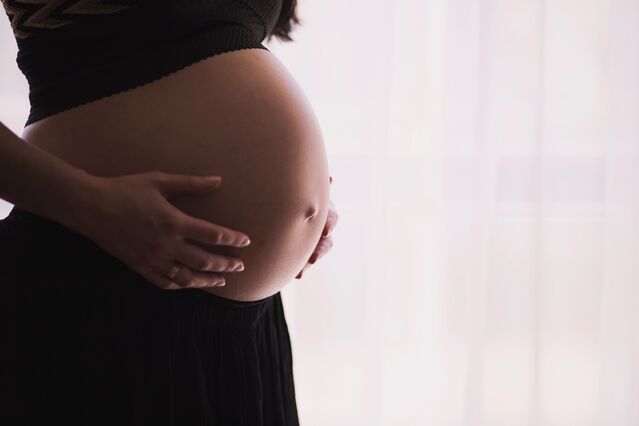Pregnancy
How Anti-Abortion Laws Affect Women With Schizophrenia
The recent Supreme Court ruling exposes many at-risk women.
Posted June 24, 2022 Reviewed by Devon Frye
Key points
- Research on the reproductive health of women with schizophrenia is limited, but reveals telling information about this vulnerable demographic.
- The Supreme Court ruling that overturned Roe v. Wade could affect women with schizophrenia.
- Women with schizophrenia are more likely to be raped and have birth complications.
- Denying abortion to women with schizophrenia may have a particularly negative impact on this demographic, but more research is needed.

As of today, the Supreme Court overturned the ruling of Roe v. Wade, which was an instrumental case that established the Constitutional right for American women to choose whether or not to terminate a pregnancy.
The Mississippi law at the center of the case prohibits any pregnancy from being terminated after 15 weeks, no matter the cause; this includes rape, incest, or teen pregnancy. With Roe overturned, each state will now make its own laws in regards to abortion, with several poised to immediately ban it altogether. Many people are upset about this case, while others celebrate the new ruling.
How does this decision affect women with schizophrenia?
Research that investigates women’s reproductive health and schizophrenia is limited, considering cultural stigmas and attitudes fail to include sexual and reproductive health as part of the recovery model of a person with schizophrenia (Barker & Vigod, 2020). Quite simply, cultural attitudes assume that women with schizophrenia likely cannot have a child due to their illness, which ranges in severity from person to person. As such, the research presented below is drawn from several countries.
While some women are able to carry a baby to term, such as Lauren Kennedy, who features her decision to have a child in her YouTube channel, "Living Well WIth Schizophrenia," many other women with schizophrenia face risks and challenges due to the nature of her disorder.
An American study found that 47.6 percent of women with schizophrenia aged 18-45 had been raped, compared to 22 percent of controls (Barker & Vigod, 2020). Another study of women living with schizophrenia in Ontario, Canada, found that there were higher abortion rates than those not living with the disorder, especially for younger age groups between 15-19 years old and 20-24 years old (Simoila et al., 2018).
According to a study conducted in France, women with schizophrenia were found to have a higher rate of pregnancy complications. Approximately 45 percent of mentally ill pregnant mothers report complications like gestational diabetes, genito-urinary infection, threatened preterm labor, and more; for healthy controls, the rate of pregnancy complications is 37.2 percent.
These numbers point to a seeming health disparity between neurotypical individuals (people without mental illness, let alone psychosis) and women with schizophrenia. And given that women with schizophrenia are likelier to have nonconsensual sex (Barker & Vigod, 2020), this raises the risk factor for unplanned pregnancies and a higher likelihood that women will seek abortions.
Even those who are stable and in recovery may have questions about possible pregnancy complications caused by antipsychotics, which is the main treatment for schizophrenia. Research has found that antipsychotics can cross the placenta barrier and potentially cause birth defects, but the risk of forgoing the drug may have worse ramifications (Edinoff et al., 2022). As such, an accidental pregnancy in women in recovery from schizophrenia may warrant some desire for pregnancy termination, particularly when a woman will potentially become unable to care for her child if she stops treatment.
The new decision by the Supreme Court may have the country divided, but it is likely to say that the new ruling could affect how women with schizophrenia care for and birth their children. Data on the effect of childrearing on a woman with schizophrenia is sparse and can vary according to many different factors that promote a woman’s recovery and support during pregnancy and childcare. More research is needed to provide conclusive outcomes of unwanted pregnancies and women living with schizophrenia.
References
Barker, L.C. & Vigod, S.N. (2020). Sexual health of women with schizophrenia: A review. Frontiers in Neuroendocrinology. 57. DOI: https://doi.org/10.1016/j.yfrne.2020.100840
Brown, H.K., Dennis, C-L., Kurdyak, P., & Vigod, S. N. (2019). A population-based study of the frequency and predictors of induced abortion among women with schizophrenia. The British Journal of Psychiatry, 215, 736-743.
Edinoff, A.N.; Sathivadivel, N.; McNeil, S.E.; Ly, A.I.; Kweon, J.; Kelkar, N.; Cornett, E.M.; Kaye, A.M.; Kaye, A.D. (2022) Antipsychotic Use in Pregnancy: Patient Mental Health Challenges, Teratogenicity, Pregnancy Complications, and Postnatal Risks. Neurol. Int., 14, 62–74. https://doi.org/10.3390/ neurolint14010005
Fabre, C., Pauly, V., Baumstarck, K., Etchecopar-Etchart, D., Orleans, V., Llorca, P-M., Blanc, J., Lancon, C., Auquier, P., Boyer, L., & Fond, G. (2021). Pregnancy, delivery and neonatal complications in women with schizophrenia: a national population-based cohort study. The Lancet Regional Health - Europe. DOI: https://doi.org/10.1016/j.lanepe.2021.100209.


